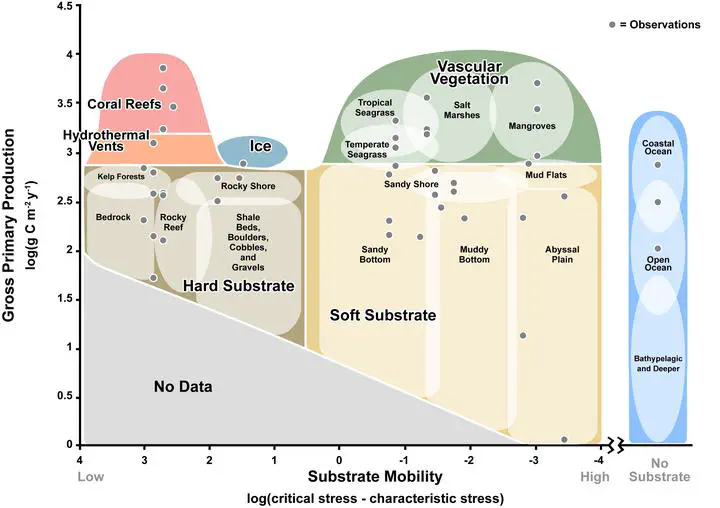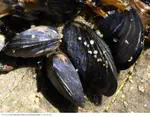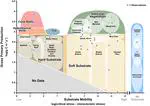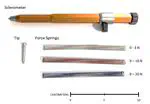Habitat Stability in hard substrate systems

Disturbance, including fluid forces via waves on rocky shores, is well understood as a community organizing and structuring force. Foundational concepts within ecology, such as Connell’s Intermediate Disturbance Hypothesis and Menge and Sutherland’s Competition/Predation/Disturbance model, recognize that communities exist within a complex mosaic of physical and biological disturbance. This mosaic presents challenges when measuring disturbance regimes since the scales, causes, and consequences of disturbance vary between systems. However, in the marine environment, substrate mobility represents an explicit measure of disturbance impact present across marine ecosystems. This research investigates a mechanism for disturbance via substrate mobility on benthic organisms through lab experiments and use field surveys to compare patterns of substrate mobility with the distribution of benthic communities and species functional groups. Explicitly quantifying the realized movement of hard substrate in response to fluid forcing integrates hard substrates into the already well understood sediment disturbance paradigm. This results in a universal framework of marine disturbance that is potentially revolutionary as it allows for comparative questions spanning a huge diversity of marine ecosystems, from coral reefs to the abyssal plain. This mechanistic framework provides a new connection between the disciplines of geomorphology and marine ecology.
Current Work
Ocean Acidifiation and Habitat Strength
An increasingly acidic ocean poses unique challenges to marine organisms, such as altering metabolism and impairing the development of tissues such as shells. It is less clear what impacts acidification may have on a community or ecosystem level. One potential outcome could be an alteration of the strength of underlying hard substrates such as rocks or shells. Much like acid rain’s impact on statues from decades ago, an acidic ocean may break down hard substrates and result in a weaker, more vulnerable habitat. This project assess the impact of ocean acidification on marine rocks and shells. Our undergraduate researchers are testing shells and rocks treated in increasingly acidic marine microcosms to determine potential ecosystem impacts of acidic conditions.
Outplanting Experiments
Although evidence points to substrate mobility as a mechanism impacting community structure it is difficult to determine the scale at which it may operate. To examine small scale community impacts of substrate mobility we are developing specially formulated settlement plates to outplant within the marine environment and track community development over time. Our undergraduate researchers are fabricating uniquely tailored settlement plates which mimic naturally occurring weak substrates, such as sandstone, to allow for field experiments comparing community development across varying mobility conditions.
If you are interested in working with these settlement plates please contact us via email or Bluesky to discuss plate formulas.


